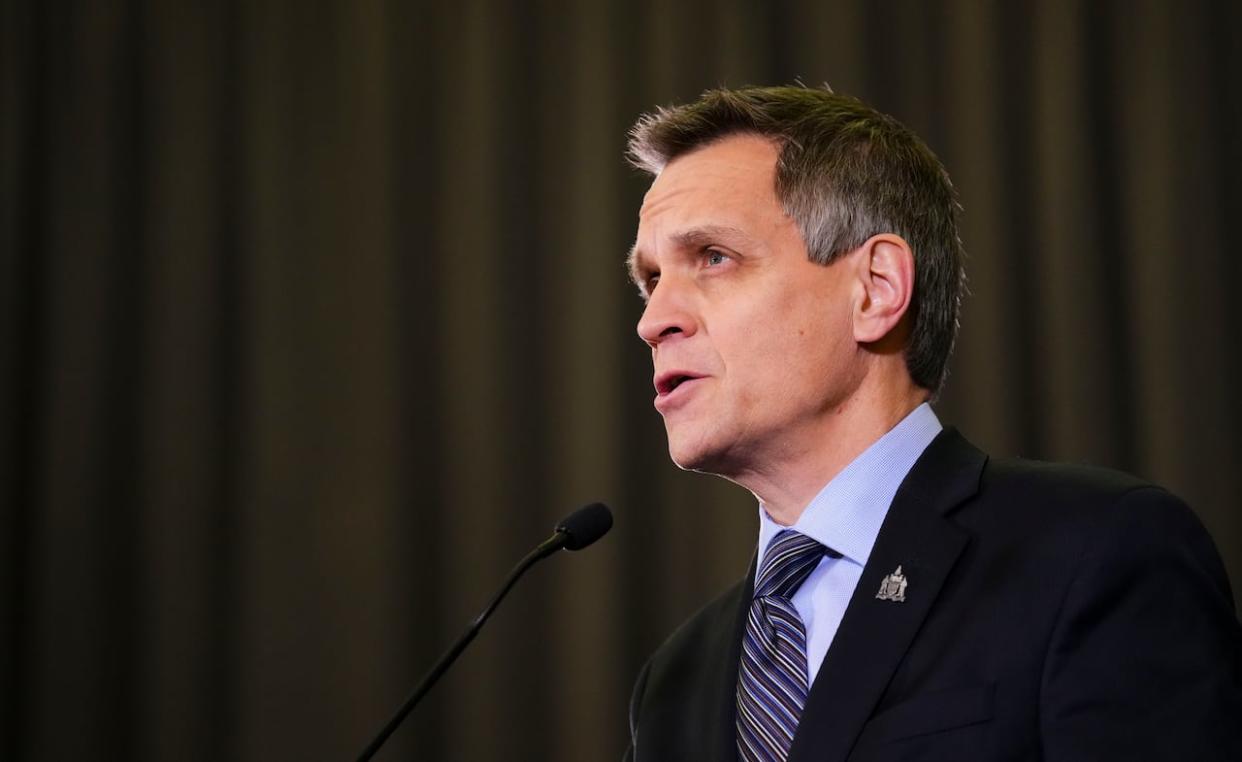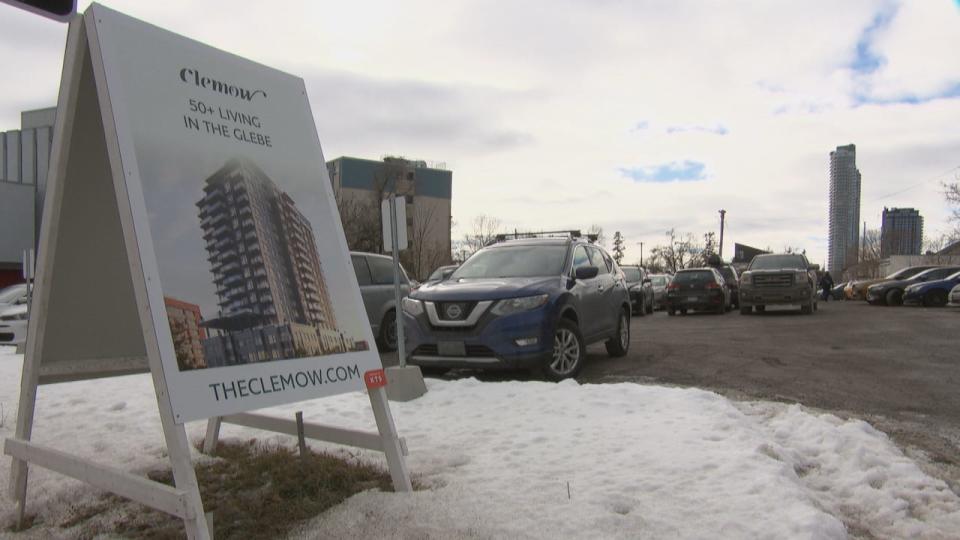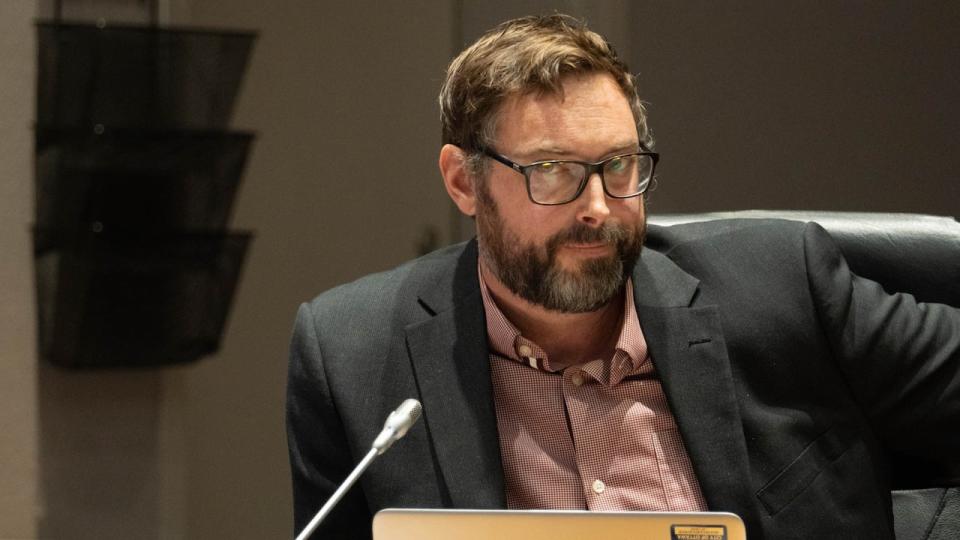Developer donations to wards should be a thing of the past, argues mayor

Ottawa Mayor Mark Sutcliffe has shifted his position on voluntary donations like the withdrawn $300,000 pledge from Groupe Katasa, saying they should never be accepted — and this latest example should be investigated.
The donation would have funded traffic calming and affordable housing in Capital ward, where Katasa is preparing to build a 22-storey tower.
Its Coun. Shawn Menard negotiated the donation and presented the agreement to his council colleagues after the development at Bronson and Carling avenues was approved.
It's a process that's not unheard of, but it isn't often discussed around the council table — and the heated debate it sparked continued through the weekend.
Groupe Katasa announced Monday it's changed its mind.
Last week Sutcliffe indicated support for setting up rules for these kinds of donations and voted in favour of accepting this donation.
He told CBC on Monday the public discussion helped him come to the conclusion that council doesn't need a new policy, as the majority of councillors have also requested, but that it needs to "discontinue" the contributions outright.
"When you have a situation where a company is making a planning application to the city, and while that planning application is being considered by the decision makers at city hall … and a member of city council approaches that developer about making a voluntary contribution, it raises questions," he said.
"It's perfectly reasonable for the developer or members of the community to wonder whether those two things are connected. We don't want that."

Groupe Katasa has withdrawn a $300,000 donation agreement it put forward after city councillors approved a 22-storey tower at the corner of Bronson and Carling avenues. (Bentola Nou/CBC)
Councillor 'disappointed' by 'political spectacle'
These are not to be confused with campaign donations that benefit a single candidate. The money goes toward the community where a development takes place.
If Katasa had gone through with the donation, the funding would have been substantial — a "windfall," as one councillor put it, which also benefits the planned development's future tenants.
The mayor believes there are other ways for developers to give back.
"If developers want to make investments or contributions to the neighbourhoods where they're building, they can make a contribution through a charity, like (BGC Ottawa) or the Ottawa Community Housing Foundation," said Sutcliffe.
Menard told CBC Radio's All in a Day these kinds of agreements are a "regular occurrence" and are necessary given that existing fees are not enough to pay for infrastructure updates.

Coun. Shawn Menard says he followed all the rules when he negotiated a voluntary donation from Groupe Katasa. (Jean Delisle/CBC)
"It's not groups like the (club) that are going to help with traffic safety in and around development or with affordable housing that's badly needed in communities," he said.
The councillor also expressed disappointment with the "political spectacle" this debate has spawned.
Timeline called into question
Menard emphasized that he checked with legal staff and the integrity commissioner to ensure his negotiations were aboveboard and got the OK.
A memo later reiterated the advice he received, which was that the "voluntary" nature of the donation should be emphasized throughout the process.
Integrity commissioner Karen Shepherd did not officially clear Menard's actions, instead calling this a "policy matter" that is outside of her jurisdiction.
That's not enough for Sutcliffe, who hopes Shepherd will weigh in on the timeline for these negotiations.
He contacted the integrity commissioner on Monday, but noted that it would be up to city council to request an investigation.
There's no price on integrity. If there are investments that are required that we need to make in Capital ward and any other part of the city … we can make those investments. - Mayor Mark Sutcliffe
Menard said he does not have an exact timeline for his negotiations with Groupe Katasa, but said conversations about how the development would affect the community went on for months.
The conversations happened concurrently — but separately — to discussions which touched on aspects of the application.
Ottawa has no codified rules to govern how these donations are solicited.
Staff have been asked to create a toolkit for councillors similar to rules at the City of Toronto, which include a "blackout" period for negotiations that starts when a developer expresses interest in a specific project and ends after the project is approved.
As for a potential funding gap left by the lack of these donations, Sutcliffe said there will be a way to fill them.
"There's no price on integrity," said Sutcliffe. "If there are investments that are required that we need to make in Capital ward and any other part of the city... we can make those investments."


